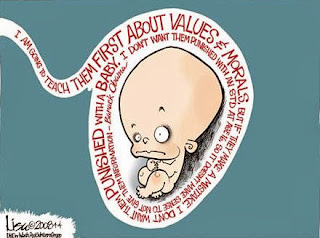Wednesday, 4 December 2013
REvision
Start revising now for your assessment here, past paper question with mark scheme available (2012), (2011) and (2010) and 2013
The overview of the topic: Religion and Early Life
Within this topic candidates should be familiar with the key teachings from the religion(s) studied and should be aware of how religious leaders and other faith members have interpreted these teachings and applied them to life in society today.
• the concept of the sanctity of life in relation to its preservation;
• children being seen as a blessing and gift and the miracle of life;
• the issues surrounding when life begins, including at conception, development of backbone, when heart starts beating, at viability, when the baby is born;
• the issues concerning the quality of life, including severe handicaps, unwanted children, poverty and suffering;
• reasons used by religious believers for and against abortion;
• the Law and abortion, including the 1967 and 1990 Acts;
• the rights of those involved, e.g. mother, father and unborn child;
• alternatives to abortion, e.g. keeping the child; adoption and fostering;
• Pro-Life and Pro-Choice arguments and pressure groups.
Tuesday, 26 November 2013
Monday, 1 July 2013
Peter Singer and Richard Dawkins on Animal Rights and Vegetarianism
.jpg)
 Peter Singer is a Philosopher specialized in Ethics and wrote a book, Animal Liberation, where he argues Animal Rights. He also developed a concept called speciesism. Richard Dawkins is a Scientist specialized in Zoology. In this interview they reflect about animal suffering , vegetarianism and how to live "ethically".
Peter Singer is a Philosopher specialized in Ethics and wrote a book, Animal Liberation, where he argues Animal Rights. He also developed a concept called speciesism. Richard Dawkins is a Scientist specialized in Zoology. In this interview they reflect about animal suffering , vegetarianism and how to live "ethically".
Wednesday, 19 June 2013
Can we make better humans? Moral issues & Ethics
 What Science can offers to us? What is the best gene? What are the limits of Genetic modification? What makes someone to be better? After attending a fascinating lecture with Professor John Bryant, who is a Christian Scientist, I share and recommend to you his views on Ethics & Genetics. Please watch those videos here thanks to Faraday Institute for Science and Religion. En-joy it! :-)
What Science can offers to us? What is the best gene? What are the limits of Genetic modification? What makes someone to be better? After attending a fascinating lecture with Professor John Bryant, who is a Christian Scientist, I share and recommend to you his views on Ethics & Genetics. Please watch those videos here thanks to Faraday Institute for Science and Religion. En-joy it! :-)
Monday, 17 June 2013
Monday, 13 May 2013
REVISION - END OF THE YEAR EXAM
Friday, 22 March 2013
Friday, 15 March 2013
Monday, 11 March 2013
Revise the following points of the Unit War and Peace
Within this topic candidates should be familiar with
the key teachings from the religion(s) studied and
should be aware of how religious leaders and other
faith members have interpreted these teachings and
applied them to life in society today.
• the concepts of peace and justice and the sanctity of life in relation to war and peace;
• the causes of war;
• conflict, including examples of recent wars;
• the reasons why religious believers might go to war, including the criteria for ‘Just War’ and ‘Holy War’;
• religious believers and pacifism;
• victims of war, including refugees, those maimed;
• organisations which help victims of war, e.g. The Red Cross, The Red Crescent;
• the work of a religious believer who has worked for peace;
• peacekeeping forces, e.g. United Nations, NATO;
• issues such as terrorism, weapons of mass destruction and nuclear proliferation;
• arguments for and against nuclear weapons, including proliferation;
• religious beliefs and teachings and modern statements about war and peace.
• the concepts of peace and justice and the sanctity of life in relation to war and peace;
• the causes of war;
• conflict, including examples of recent wars;
• the reasons why religious believers might go to war, including the criteria for ‘Just War’ and ‘Holy War’;
• religious believers and pacifism;
• victims of war, including refugees, those maimed;
• organisations which help victims of war, e.g. The Red Cross, The Red Crescent;
• the work of a religious believer who has worked for peace;
• peacekeeping forces, e.g. United Nations, NATO;
• issues such as terrorism, weapons of mass destruction and nuclear proliferation;
• arguments for and against nuclear weapons, including proliferation;
• religious beliefs and teachings and modern statements about war and peace.
Wednesday, 13 February 2013
Weapons of Mass Destruction
Create a fact file about them. Explain what where, why, how and when they were used. Give three examples and explain the consequences of it. PS: The main types of WMD are chemical, biological and nuclear.
Thursday, 31 January 2013
Pacifism and conscientious objector
Pacifism: the belief that war and violence are unjustifiable and that all disputes should be settled by peaceful means.
Conscientious Objector, find out more here
Victims of War
Please watch here this poignant report about Syrian refugees in Jordanian refugee camps thanks to Channel 4 news .
More details of the work of Red Cross and Red Crescent please visit the links on the section "bitelights" and pictures of their amazing work here.
More details of the work of Red Cross and Red Crescent please visit the links on the section "bitelights" and pictures of their amazing work here.
Wednesday, 30 January 2013
Subscribe to:
Comments (Atom)










